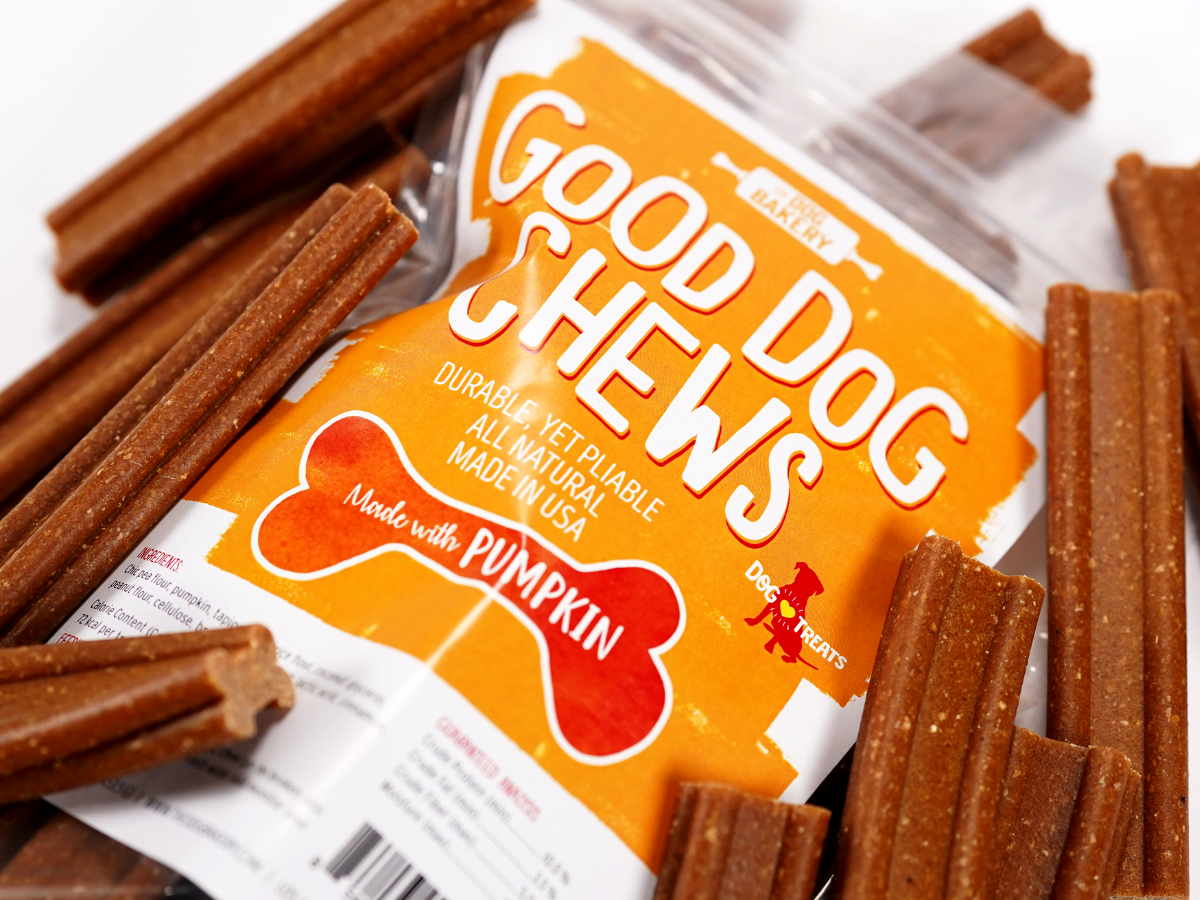How Long Does it Take a Dog To Digest Food?

The practical responsibilities of dog ownership aren’t something we talk a lot about, since they just aren’t as exciting as the prospect of playing with a dog, forming an amazing bond, or rehabilitating a dog with a difficult past. No one fantasizes about making sure their dog poops every day, but that’s a big part of making sure they are happy and healthy.
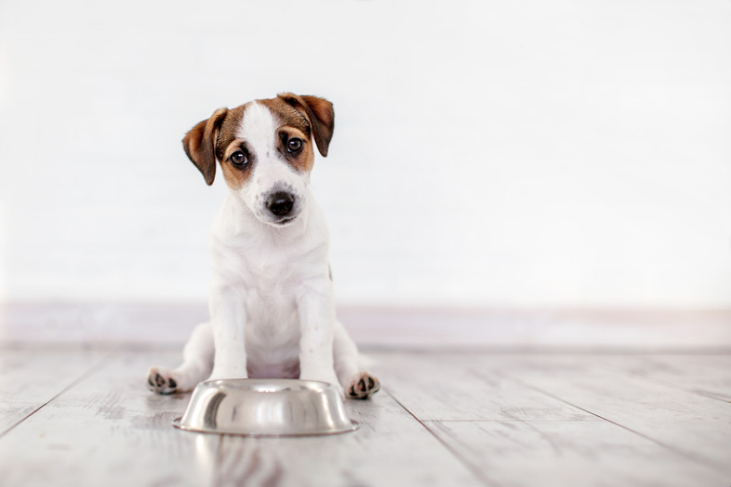
The basics of dog ownership are still the most important, and those include giving them good food, taking them to go potty, and managing their health. Understanding your dog’s digestive system is one thing you can do to better understand their overall health, predict their potty needs, and feed them the best diet for their particular needs.
Related Articles
- Best Dog Food For Senior Dogs
- Best Dog Food for Weight Gain
- Best Food For Picky Eaters
- 6 Vegan Dog-Food Recipes for Dogs with Meat Allergies
With that, let’s dive into the world of the doggy digestive system, and learn the answer to the question: How long does it take a dog to digest food?
Understanding Canine Digestion
Digestion is the process by which the body absorbs and processes nutrients. Food is broken down mechanically as the dog chews and the digestive system contracts to move the food through each stage. So that the body can absorb the nutrients and transform the food into–ahem–poop, the food is also chemically broken down by enzymes and gut acids.
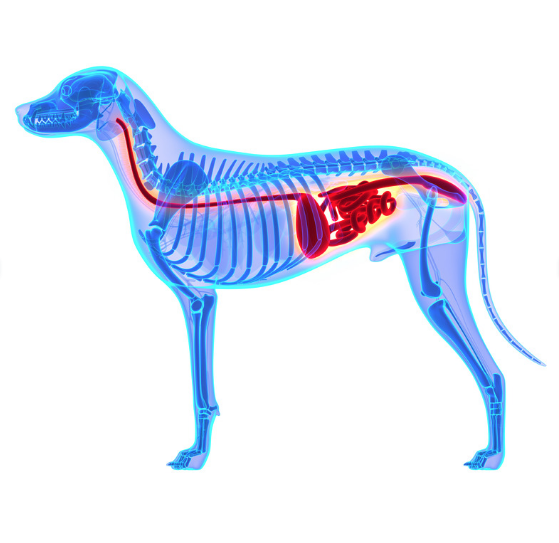
Once the digestion process is complete, the food has moved from the mouth, down the esophagus, into the stomach, and through the intestines. Tada! Your dog is ready to go potty!
So the question is, how long does food stay in a dog’s stomach before being fully digested?
How Long Does it Take a Dog To Digest Food?
Dogs have a remarkably fast digestive system–at least by human standards–and can fully digest food within 4 to 12 hours. Most dogs will fall somewhere in the middle at around 6-9 hours. Dogs have this shorter digestion time because of their (relatively) short digestive tract, which is characteristic of animals that fall within the “carnivore” umbrella.
TLDR: How long does it take for a dog to digest a meal? About 8 hours.
See also This One Thing Will Extend Your Dog’s Life for 3 Years, Yet Most People Rarely Do It
Are Dogs Omnivores or Carnivores?
If you’ve heard that dogs are omnivores, you’re not alone, this theory has been popular for several decades, but dogs are actually carnivores.
The term “carnivore” refers to animals that rely on meat (or fish) for the majority (or a large portion) of their nutritional needs. Over time, with selective breeding and domestication, the dog’s digestive system has adapted to easily metabolize grain-based diets fed to them by humans, but this doesn’t change the fact that dogs are carnivores.
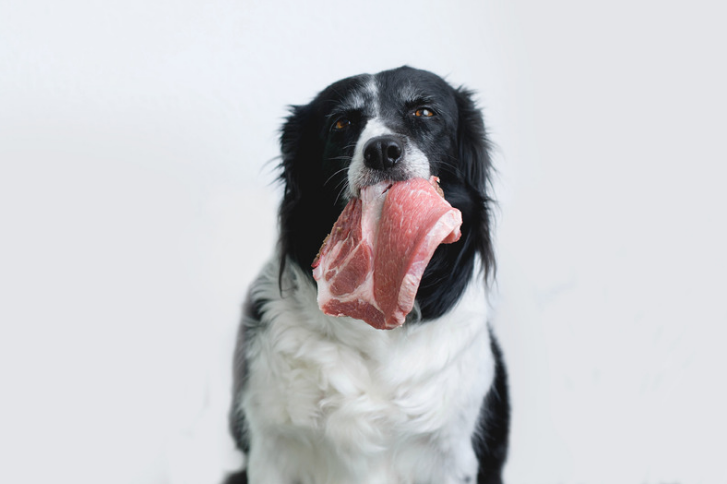
“Both domestic cats and dogs are descendants of true carnivores with cats having a relatively highly non-adaptive metabolism while dogs have inherited a moderately adaptive metabolism due to the feast and famine lifestyle of its direct ancestor,” says Dr. Wouter Hendriks of Utrecht University’s Department of Animal Sciences and Veterinary Medicine in the Netherlands in a paper published on the “omnivorous dog dogma,” as Hendriks has coined it. “The proposed classification of our domestic dogs as an adaptive carnivore and cats as an obligatory carnivore appear to be the most accurate.”
It may also be accurate to describe dogs as “facultative carnivores,” a group of carnivores that can live off of non-meat, but will only thrive when their diet heavily features meat, organs, and bone. Facultative carnivores also enjoy the benefits of micronutrients and dietary fiber found in some grains and vegetables. Basically, dogs need meat to survive, but veggies and certain grains can help add to their diet without any issues.
Factors That Impact Digestion
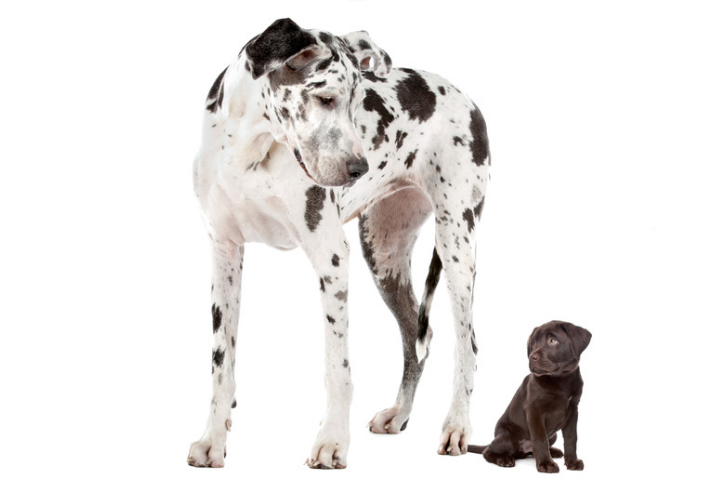
The time it takes for your dog to digest its food will partially depend on the following factors:
- Size/Weight: On average, larger dogs take longer to digest than smaller dogs.
- Diet Composition: A dog whose diet is lacking in some nutrients will either digest too quickly or too slowly. Additionally, foods that are lacking in nutrients will pass more quickly, since the dog’s body can’t pull nutrients from it. If they are too slow, they may be lacking in dietary fiber. If it’s too fast, they could need some more protein.*
Digestion time can also be impacted by the type of food your dog is eating. For example, how long it takes for a dog to digest dry food may be different than how long it takes to digest fresh-frozen or raw food.
*Remember, talk to your vet before you make a change!
- Gut Health: Dogs, like humans, need to have a healthy gut biome to digest efficiently. Usually, dogs produce the right bacteria to balance their gut biome themselves, but some may need the help of prebiotic and probiotic supplements to support the growth of healthy bacteria.*
*Again, speak with a veterinarian before adding supplements to your dog’s diet. - Hydration: The more hydrated your dog is, the better their digestion will be!
- Exercise: If your dog gets moving every day, chances are they will digest quickly and efficiently, whereas lower-activity dogs will typically take a little longer to digest their food.
See also Puppuccino Recipe from Pet Chef Rocky Kanaka
How Long Does it Take a Dog To Digest Food? The FAQ
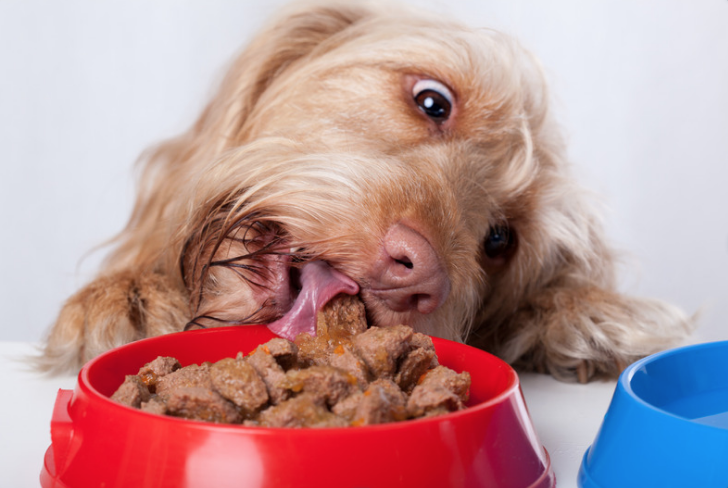
Let’s get a little more specific with how long it takes a dog to digest their food. Here are just the straight-up facts.
How Long Does it Take For a Pill to Digest in a Dog?
Medication passes through a dog at the same physical rate as any other thing they eat–more important is knowing how fast a specific pill will be absorbed by your dog’s body. Most medication has an onset that starts about 20-30 minutes after consumption. How long the medication lasts in the dog’s system depends on the type and quantity of medication.
How Long Does It Take For A Large Dog To Digest Food?
Large dogs typically digest in 6-8 hours, but it could take anywhere from 4-12 hours.
How Long Does It Take For A Medium-Sized Dog To Digest Food?
This question is basically the same as asking “how long does it take for a 40-pound dog to digest food?” since 40 pounds is a fairly standard weight for a medium dog.
Medium-sized dogs are slightly less predictable than large and small dogs, and could easily take anywhere from 4-12 hours to digest their food.
How Long Does It Take For A Small Dog To Digest Food?
Small dogs typically digest food in 4-6 hours, but it could take anywhere from 4-12 hours.
How Long Does It Take A Dog To Digest Water?
Water isn’t “digested” in the way that food is, and the process is slightly faster than the food digestion process. Water begins to absorb almost immediately, and the point at which a dog needs to “go” is when their bladder is full, not when the water has fully “digested.”
Most adult dogs can go up to 8 hours without a potty break, but it’s best to take them out every 4-6 hours for their comfort, except overnight, when they may be able to go as long as 8-10, depending on their size. Larger dogs will naturally have a larger bladder, and be able to hold it longer than smaller dogs.


